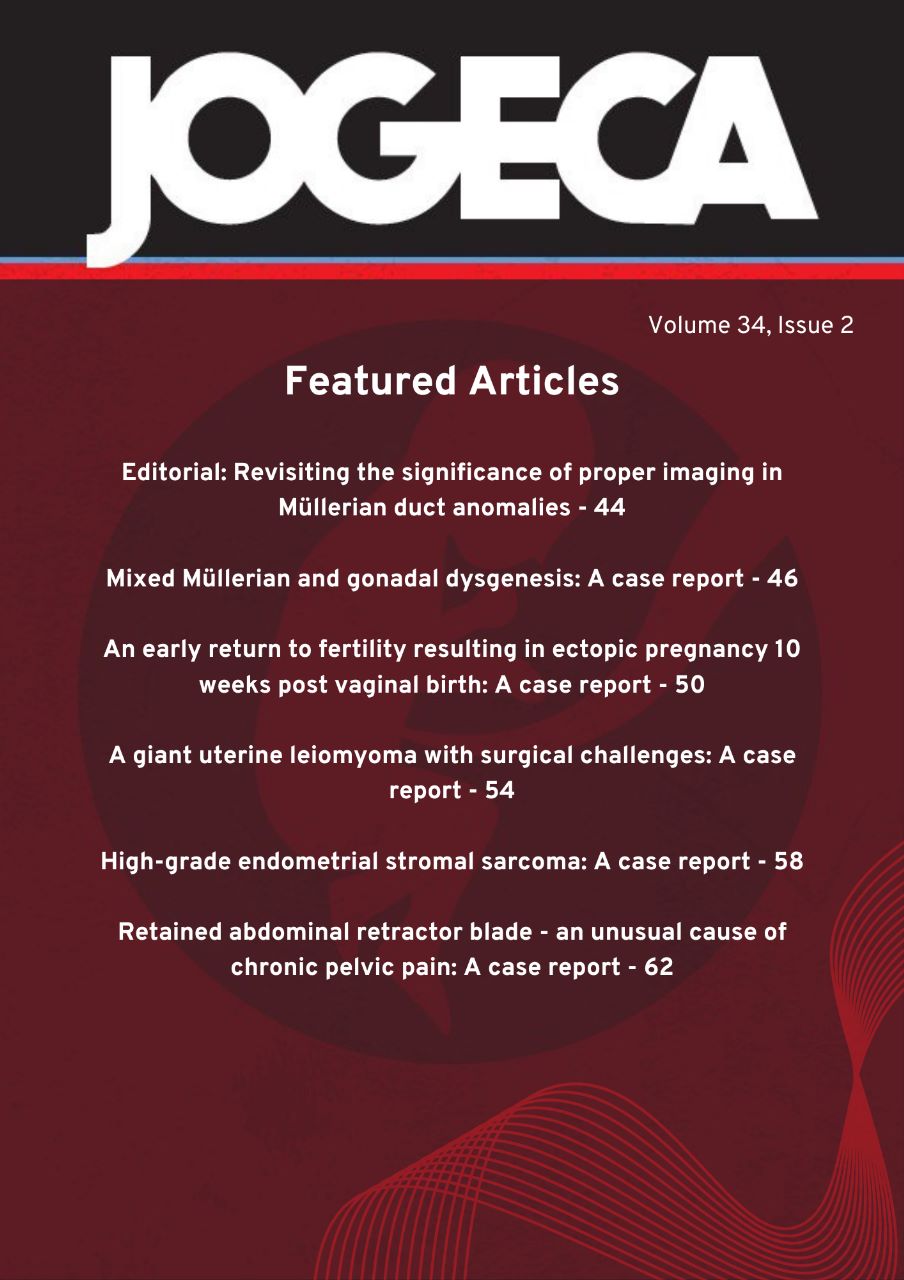Gestation substance abuse enhances the propensity toward adverse pregnancy outcomes
DOI:
https://doi.org/10.59692/jogeca.v37i2.644Abstract
Substance abuse during pregnancy has predominantly afflicted younger echelons and has routinely been associated with multiple obstetric complications. These adverse outcomes have routinely been attributed to impaired access to care (1). This has been recognized as a problem in multiple settings and is acknowledged as having the potential for far-reaching long-term impact of the maternal-fetal dyad (2).
In this issue, Obwaya et alia undertook a retrospective cohort study to evaluate adverse pregnancy outcomes amongst gravidae who chewed Khat (Catha edulis) in Meru County, Kenya (3). The majority of their Khat-consuming study participants (90%) were under 35 years of age, with no differences observed in their mode of delivery. On analysis, they found that the use of Khat resulted in a duodecuple, quadrupled, and tripled increase in the risks of postpartum hemorrhage, preterm birth, and low birth weight, respectively. They also inferred increased associations with admission to the neonatal intensive care unit and premature rupture of membranes, although the latter lacked statistical significance. This evidence corroborates the inference of a previous meta-analysis which concluded that: substance abuse is a risk factor for adverse pregnancy outcomes; and that one in five substance users are engaged in polysubstance use (4). Despite the limitations incurred, this study generated objective evidence that associates Khat use with significant adverse pregnancy outcomes in the Kenyan setting.
Overall, there is a considerable association between adverse pregnancy outcomes and substance use during gestation. Additionally, there may be considerable value in following up on such study populations to determine if maternal substance abuse during pregnancy would be associated with conduct problems in the offspring (5) in our setting.
References
Pinto SM, Dodd S, Walkinshaw SA, Siney C, Kakkar P, Mousa HA. Substance abuse during pregnancy: effect on pregnancy outcomes. Eur J Obstet Gynecol Reprod Biol. 2010 Jun 1:137–41
Oni HT, Drake JA, Dietze P, Higgs P, Islam MM. Barriers to women’s disclosure of and treatment for substance use during pregnancy: A qualitative study. Women and Birth. 2022 Nov 1;35(6):576–81
Obwaya HO, Gwako GN, Osoti AO, Ogutu O. Adverse pregnancy outcomes among pregnant mothers who chewed Khat in Meru County, Kenya: A retrospective cohort study. J Obs Gynecol E Cent Africa. 2025;37(2):87–93
Board A, D’Angelo D V., Salvesen von Essen B, Denny CH, Miele K, Dunkley J, et al. Polysubstance use during pregnancy: The importance of screening, patient education, and integrating a harm reduction perspective. Drug Alcohol Depend. 2023 Jun 1;247
Ruisch IH, Dietrich A, Glennon JC, Buitelaar JK, Hoekstra PJ. Maternal substance use during pregnancy and offspring conduct problems: A meta-analysis. Neurosci Biobehav Rev. 2018 Jan 1;84:325–36
Downloads
Published
How to Cite
Issue
Section
Categories
License
Copyright (c) 2025 Dr. Paul Koigi

This work is licensed under a Creative Commons Attribution 4.0 International License.





